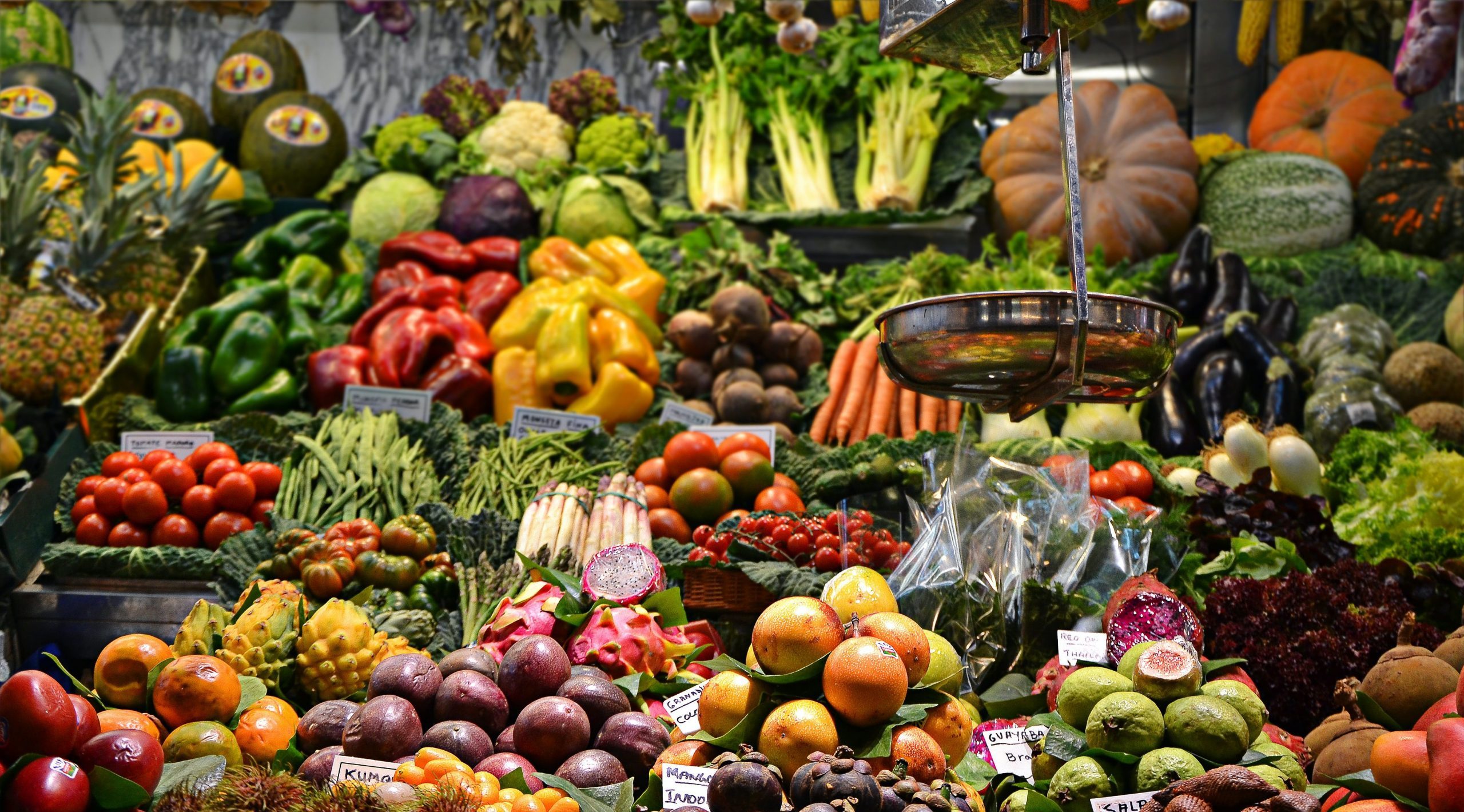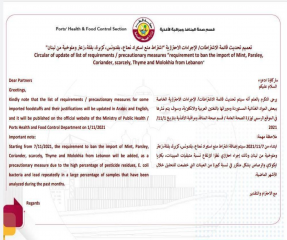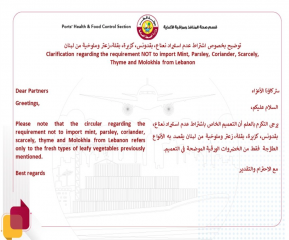The Lebanese minister said “good news” will be announced in the coming days.
Qatari authorities reportedly issued a circular on Wednesday banning the import of specified vegetables from Lebanon due to excessive levels of chemical residues and E-coli bacteria.
The Ports’ Health and Food Control Section under Qatar’s Ministry of Public Health (MoPH) issued an update of the list of requirements and precautionary measures for some imported food products from Lebanon, according to Lebanese media.
The circular stated that starting from 7 November, imports of mint, parsley, coriander, scarcely, Thyme and Molokhia will be banned from the Lebanese Republic, “as a precautionary measure due to the high percentage of pesticide residues, E.coli bacteria and lead repeatedly in a large percentage of samples that have been analysed during the past months.”
It stressed that the statement addresses only “the fresh types of leafy vegetables previously mentioned.”
Speaking to Doha News, Lebanese Minister of Agriculture Abbas Hajj Hassan said he raised the issue with the Qatari Minister of Municipality and Environment Abdulla bin Abdulaziz bin Turki Al Subai on the sidelines of the Organisation of Islamic Cooperation Conference on Food Security and Agricultural Development.
“I discussed with the Qatari minister on the sidelines of the meeting topics that concern Qatar and Lebanon, and of course the main issue is the Qatari decision to ban imports of some Lebanese vegetables due to a recent shipment that appeared to have high levels of residues.”
Hajj Hassan noted that the session was “positive”, adding that “the Qatari minister confirmed to me that the ministry will still be committed to running reliable tests”.
He stressed that future cases will be met with legal action against the exporter responsible for any violations.
“The Lebanese ministry of agriculture will fine exporters who fail to adhere to the measures and could prohibit them from exporting,” he added.
The Lebanese official confirmed he had sent a message to Qatar’s Ministry of Public Health [MoPh] to request authorities urgently reconsider the decision.
The Lebanese and Qatari officials met on Wednesday in Istanbul during the 8th OIC Ministerial Conference, Lebanese National News Agency (NNA) reported.
“Hopefully in the coming days we will have good news for the Lebanese on this matter and efforts will be rewarded,” he told Doha News, suggesting “decisions will be reconsidered”.
However, the final decision should be left for authorities in Doha to announce, he added.
“We can’t say that what happened is unusual, it is normal. What’s important is that it doesn’t reoccur in future, especially that Lebanese-Qatari relations are excellent and Qatar has always stood by Lebanon and the import-export process between the two countries has been going smoothly.
“All restrictions imposed with respect to global standards are considered positive measures,” he added.
Read also: Qatar in talks with Lebanon to provide LNG amid fuel crisis
Regarding the amount of imports and exports between Lebanon and Qatar, the minister said the numbers varied between, before and after the year 2020 due to the coronavirus pandemic.
“What we can confirm is that the exports towards Qatar are strategic and central to Lebanon and Lebanese farmers, especially that we almost export everything to Qatar,” he said, hoping for “greater and more diversified quantities of Lebanese goods to reach Qatar’s markets in future”.
“This would support the economic sector in general, and the agricultural sector in particular,” he added.
Lebanon is in dire need of financial and economic aid, both of which have been stalled due to political instability and a deadlock in reforms. The international community had previously refused to provide such financial incentives until the new Lebanese government receives its vote of confidence, which has now taken place.
This has left the average Lebanese struggling amid the country’s worst ever economic crisis, with three-quarters of the population plunged into poverty. The Lebanese pound has lost almost 90 percent of its value.
“As you may know we are suffering today from a severe economic crisis which affected the Lebanese society negatively and so we will not waste any chance that could ease the suffering of Lebanese citizens,” the minister said.









